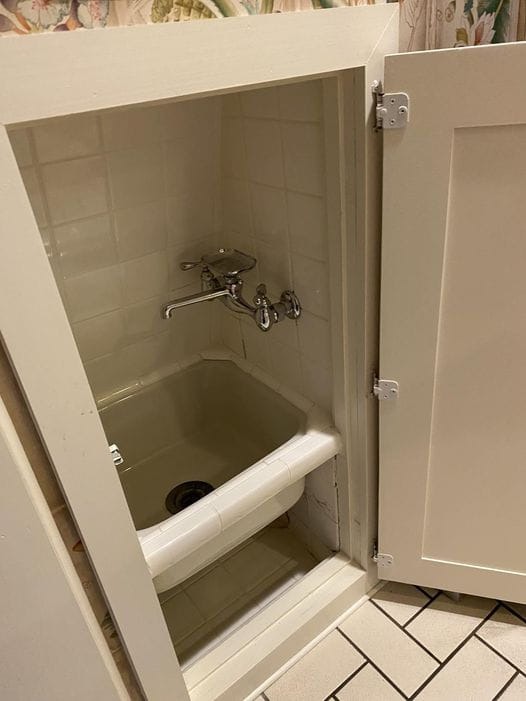The knee-level mopping sink was typically located in utility areas or back halls, away from the main living spaces, underscoring the era’s tendency to keep domestic work out of sight and mind of the household’s more genteel inhabitants. Its presence speaks to a time when manual labor was an integral part of daily life, and innovations aimed at streamlining such tasks were highly valued.

Beyond its practical applications, the antique mopping sink is a testament to the craftsmanship of the era. These sinks were often elegantly designed, with some featuring ornate detailing or inscriptions, elevating a purely functional item into a piece of aesthetic significance. The durability of the materials used ensured that many of these sinks have survived to this day, now cherished as unique historical artifacts or repurposed as decorative elements in modern homes.
The antique sink for mopping stands as a cultural and architectural relic, offering insight into the past’s domestic routines. It reminds us of the continuous evolution of home design in response to the changing dynamics of work and social status within the household. For historians, architects, and antique enthusiasts, these sinks are not merely relics of utility but symbols of an era’s approach to functionality, design, and the demarcation of social spaces within the home.
ADVERTISEMENT

